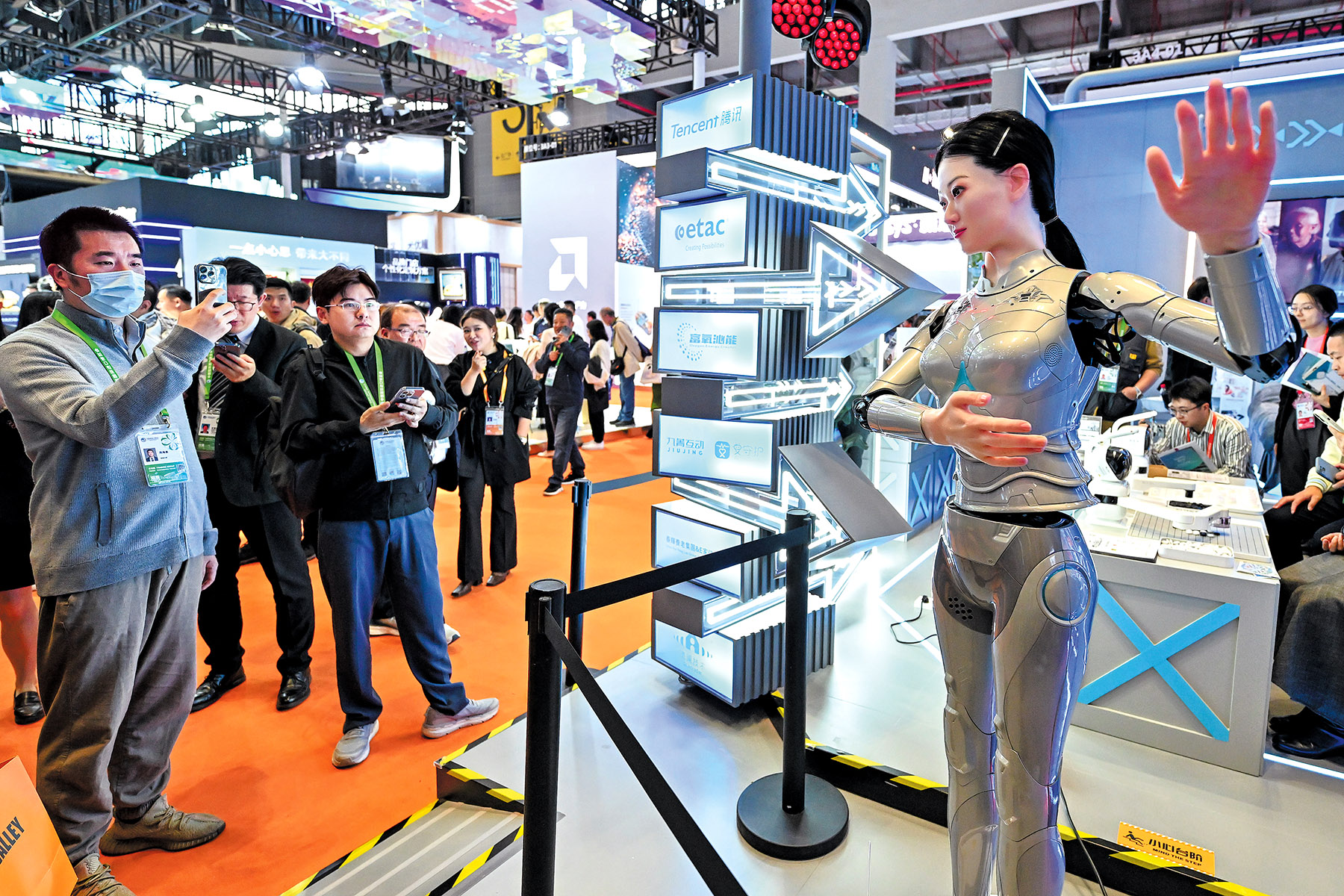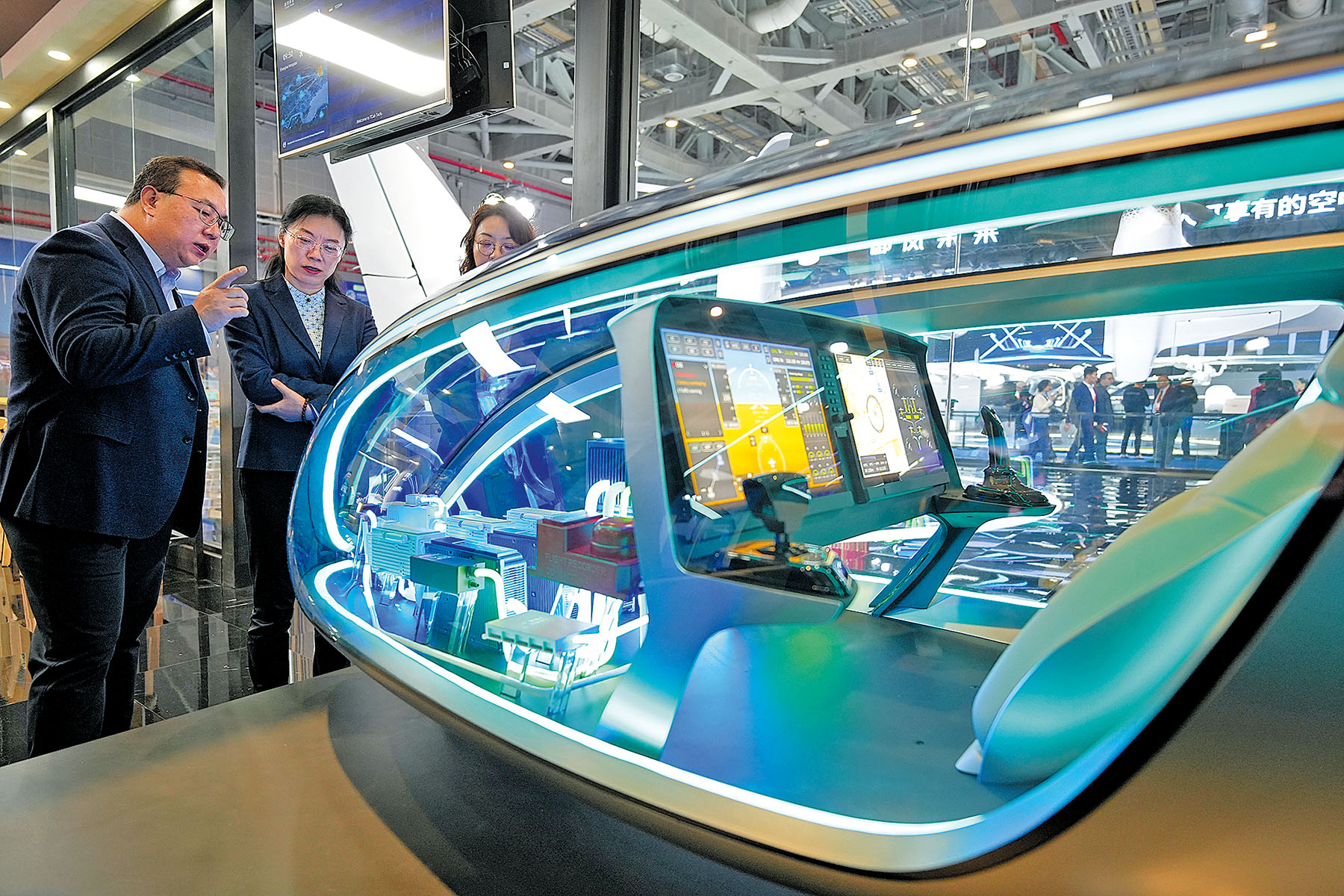High-end overseas brands that debuted at previous CIIEs amplify market presence in country

Across the world, introducing a brand-new product to the market was once an undoubtedly monumental task.
However, at the China International Import Expo (CIIE), a major international event held in Shanghai in November each year, the brand growth cycle that used to be measured in years has been fast-tracked into just days.
The trend, experts said, demonstrates the growing confidence of multinational companies in how the expo has evolved over the years into a global platform for foreign trade.
It also shows the high expectations of MNCs that the larger Chinese market will also benefit from the spillover effect to amplify their market presence in China and beyond.
For Japanese cosmetics giant Shiseido, the huge spillover effect allows the company to witness how its exhibits turn into commodities and then into bestsellers in the Chinese market, said Toshinobu Umetsu, president and CEO of Shiseido China.
Shiseido debuted many high-end brands including The Ginza, Baum, and Effectim at previous CIIEs and these brands were able to quickly enter the China market.
Thanks to the enduring impact of the expo, The Ginza also opened its first exclusive shop in Beijing and a boutique in Shanghai. Both are the first of their kind outside of Japan and duty-free channels.
Umetsu said: “China today is leading the way in the application of innovative technologies, and understanding the latest innovation trends in China is key to capturing future growth opportunities.”
Shiseido, which came to China during the early period of the country’s reform and opening-up as the first foreign beauty group to enter the Chinese mainland, has been present in the country for over four decades.
“We have never wavered in our confidence and determination to invest in China and will continue to strengthen our long-term investment in the country to provide all the support needed to drive further innovation, growth, and best practices,” he added.
Compared to customers in other markets, Chinese consumers are more conscious of their beauty needs and are willing to accept new products, which assures Shiseido of its investments in the market, he added.

Chinese Premier Li Qiang pledged at the 2024 CIIE to further expand opening-up and turn China’s vast market into great opportunities for the world.
If the first CIIE was a one-way invitation from China to the world, then each subsequent edition has become a mutual commitment between China and the world, reflecting the shared aspiration for opening-up and cooperation, the premier said.
Li stressed the need to strengthen consensus on opening-up, adding that all parties should jointly adhere to international economic and trade orders as well as rules. They must also earnestly fulfill multilateral and bilateral economic and trade agreements, he added.
China will further expand institutional opening-up and actively align with high-standard international economic and trade rules, Li said, pledging efforts to implement a strategy for upgrading pilot free trade zones.
Li said the country is willing to open up its enormous market further, including implementing its unilateral opening-up policy and offering zero-tariff treatment for all tariff lines from least developed countries, and effectively turn the huge market into great global opportunities.
The expo’s transformative potential has not been lost on German software and cloud giant SAP, which is doubling down on its presence in China.
Michael Locher-Tjoa, SAP’s global vice-president and chief business officer for Greater China, said China is one of the “key markets” for SAP, and definitely an important place for the company to strengthen its presence and grow further.
“Many of our multinational customers are doing business in China and a significant number of them in large scale. It reflects what they expect that the growth from the market would be huge,” he said.
According to the senior executive, China has been moving fast in many emerging sectors like new energy over the years and has witnessed rising engineering capabilities from various sectors.
“As multinationals further invest and grow their business here, SAP will help them grow and have a more sustainable business going forward,” he added.

Zhang Yansheng, chief researcher at the China Center for International Economic Exchanges, said: “The fact that the CIIE is organized every year demonstrates that China honors its commitment to high-level opening-up and is sharing its development dividends with others to shore up globalization.
“The world is in urgent need of more trade orders and increased demand to revive the staggering economic recovery, as well as communication to reach consensus and repair global industrial and supply chains.”
Against the backdrop of a global economic slowdown, Pablo Machado, global executive vice-president at Suzano, said the company looks at the Chinese market from a “long-term perspective” and has great confidence about growth in the Chinese market.
“The year 2025 will again be a year of growth for Suzano here. We have seen a clear plan from the Chinese government in adjusting its development model, which focuses more on high quality rather than only high speed,” said Machado, who is also president of business management at Suzano Asia.
According to him, the company’s pulp business grew 6.6 percent year-on-year in 2023 in the Chinese market thanks to the country’s economic growth and is already its largest pulp export destination, which accounted for over 40 percent of its exports.
“In line with the Chinese government’s initiatives to cultivate new quality productive forces, particularly to improve the promotion of strategic industries such as new-generation information technology, artificial intelligence, new energy, new materials, and biomedicine, Suzano will enhance our scale and competitiveness to meet the growing market demand here,” he said.
Compared with traditional productive tools that are driven by elements like labor, land, and capital, new quality productive forces refer to technological innovation, data, smart or intelligent technologies, and the like that are free from traditional economic growth models, promise high efficiency and top quality, and are in line with the nation’s new development philosophy for a strategic future.
China has made developing new quality productive forces into a top agenda.
In order to remove obstacles and difficulties in the development of new quality productive forces, the country is also speeding up the process of deepening reform of its economic structure and building a high-level socialist market economy system, with a key focus on fields including a high-standard market system.
According to Machado, China has launched many initiatives in recent years, including the further opening-up policy and some economic stimulus policies, which are the right directions to overcome rising economic challenges. “With such continued efforts, confidence will be fully restored,” he said.
“Our vision for the future is clear; we remain committed to further strengthening our partnerships with local stakeholders, especially within the sustainability and innovation ecosystem, to accelerate China’s shift toward a low-carbon economy,” he added.
Despite subdued global investment sentiment, multinational companies are confident about investing in China and firmly believe innovations can represent the most significant growth opportunities for them in the Chinese market, said Zhou Mi, a senior researcher at the Chinese Academy of International Trade and Economic Cooperation.
“The stable development of the Chinese market is not only to achieve the country’s own development goals, but can also create more value for the international community,” Zhou said.


